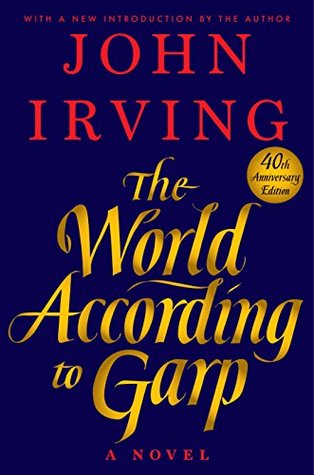More on this book
Community
Kindle Notes & Highlights
become a doctor, or if she’d stayed in college until she married one. Each time she saw her brothers, her mother, and her father, they were more uncomfortable in one another’s presence. They were involved in that awkward procedure of getting to unknow each other.
The older they got, the more they needed; and the less anyone wanted or loved them.
“My mother,” Garp wrote, “went through her life on the lookout for purse-snatchers and snatch-snatchers.”
In this dirty-minded world, she thought, you are either somebody’s wife or somebody’s whore—or fast on your way to becoming one or the other. If you don’t fit either category, then everyone tries to make you think there is something wrong with you. But, she thought, there is nothing wrong with me. That was the beginning, of course, of the book
“That dog was a killer, protected by one of the many thin and senseless bits of logic that the upper classes in America are famous for: namely, that the children and pets of the aristocracy couldn’t possibly be too free, or hurt anybody. That other people should not overpopulate the world, or be allowed to release their dogs, but that the dogs and children of rich people have a right to run free.”
“Real or imagined, my mother’s enemy helped her see the way she should behave, and how she should instruct me. She was no natural at motherhood; in fact, I think my mother doubted that anything happened naturally. She was self-conscious and deliberate to the end.”
What you haven’t had is the competition. And you’ve got to be hungry for it, Garp. You’ve got to really be interested, you know.”
But they both must have known that you can know someone all your life and never quite be friends.
I was thinking I had noticed a curious lack of either enthusiasm or bitterness in the account of the world by Theobald’s sister. There was in her story the flatness one associates with a storyteller who is accepting of unhappy endings, as if her life and her companions had never been exotic to her—as if they had always been staging a ludicrous and doomed effort at reclassification.
“And what about you and Alice?” Helen asked. “If it’s over for one of us, it’s over for all of us,” Garp said. “That’s only fair.” “I know what’s fair,” Helen said. “I also know what’s human.”
“You only grow by coming to the end of something and by beginning something else.”
Garp thought it strange that people in the process of making a decision that will plant them firmly in a minority, forever, are possibly less tolerant of other minorities than we might imagine.
over again. Roberta’s vehemence was not unique; Garp pondered how these other women in his mother’s house, and in her care, had all been victims of intolerance—yet most of them he’d met seemed especially intolerant of each other.
“is about a man who is so fearful of bad things happening to his loved ones that he creates an atmosphere of such tension that bad things are almost certain to occur. And they do.
allowing women to live their own lives and make their own choices.” “Oh?” said Garp. “And did she believe that everything that happened to women happened to them because they were women?” “You have to be stupid to believe that, Garp,”
admitted her disapproval of what they had done—perhaps only to Garp. “They’re making victims of themselves,” Jenny had said, “and yet that’s the same thing they’re angry at men for doing to them. Why don’t they just take a vow of silence, or never speak in a man’s presence?” Jenny said. “It’s not logical: to maim yourself to make a point.”
Garp had become the weakest sort of liberal: he would evaluate no one.
note. “No matter what my fucking last words were, please say they were these: ‘I have always known that the pursuit of excellence is a lethal habit.’”


